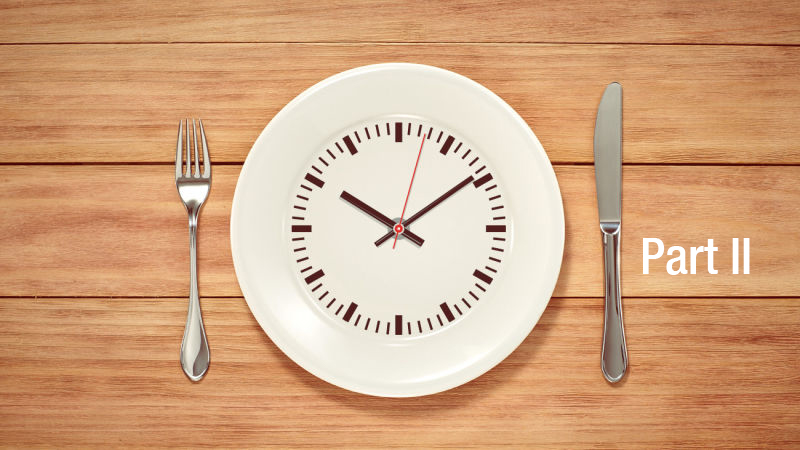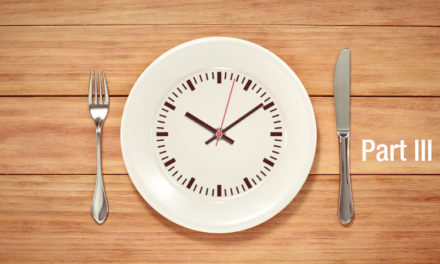In Part I of my intermittent fasting series I detailed the potential health benefits that can be seen from intermittent fasting. Here in Part II I will address intermittent fasting’s potential for fat loss and weight management.
Losing weight is a complex task, one that we are still learning a lot about. And while debates still rage over the merits of various diets such as paleo, vegan, low carb, low fast and so on, there is one aspect of weight loss that every one agrees on. In order to lose weight we must achieve a caloric deficit.
Achieving A Caloric Deficit
The first reason intermittent fasting is a particularly effective weight loss tool is that fasting enables us to easily create sizable caloric deficits. For instance, lets say you normally consume 2400 calories a day spread evenly between your breakfast, lunch, and dinner. If you skip breakfast and lunch you would reduce your caloric intake by two-thirds. That is a caloric deficit of 1600 calories.
If you are able to repeat this just one more time over the course of a week, you will then achieve a total weekly caloric deficit of 3200 calories. As it takes burning approximately 3500 calories to lose a pound, (simplification here,) just by implementing two twenty four hour fasts per week you will have almost achieved enough of a caloric deficit to lose a pound a week. And all without stepping foot into a gym.
Boosting Growth Hormone
A second reason intermittent fasting may be an effective tool for weight loss is that multiple studies have found that fasting for as little as 24 hours can significantly boost resting levels of growth hormone. Utah’s Intermountain Medical Center’s 2007 study found fasting for 24 hours boosted men’s growth hormone levels by 2000% and women’s by %1300. Growth hormone in turn has been shown to inhibit fat storage and promote fat lose.
Growth hormone inhibits fat storage by inhibiting the hormone lipoprotein lipase, which is responsible for storing fat in our fat cells. Growth hormone also promotes fast loss by boosting the effectiveness of hormone sensitive lipase, the hormone responsible for getting fat out of our fat cells. Once our fat stores, in the form of stored triglycerides, have been removed from our fat (adipose) cells, they enter the blood stream where they can then be taken up by other cells in our body where they will be burned off as they are used for fuel.
Acing The Time / Money / Energy Test
The third reason intermittent fasting is often such an effective method for losing weight is it absolutely aces the time / money/ energy test.
The time / money / energy test is a test that asks, “If I try to do X, in this case intermittently fast, how much time will it take, money will it cost, and energy will I have to expend to do so?”
To acquire food that is ready to eat, you have two options. Either you shop, prepare, and then cook your food, (and then wash your dishes) or physically go someplace and get your food. Either choice takes a significant amount of time, costs money, and takes physical energy to do. (Although delivery can significantly reduce the time and energy needed to acquire food, it does come at an increased monetary cost.) No matter how you get your food though, once you have it you still have to eat it and doing so takes even more time and requires even more energy.
Fasting on the other hand saves you time. There is no shopping, no food preparation, no cooking, no cleaning, and no eating involved. Fasting saves you money as you don’t have to buy anything. And fasting saves you energy as you don’t have to put in an ounce of energy to acquire your food or eat it. Think about how much time, money, energy, and aggravation you would save on any given day if you didn’t have to eat breakfast and lunch, or lunch and dinner.
Rounding It Up
It is the combination of the large caloric deficits achievable through intermittent fasting, intermittent fasting’s growth hormone boosting effect, and how practically applicable intermittent fasting is, that make intermittent fasting such a powerful and effective tool for weight loss and weight maintenance.
To Our Health
Zach





